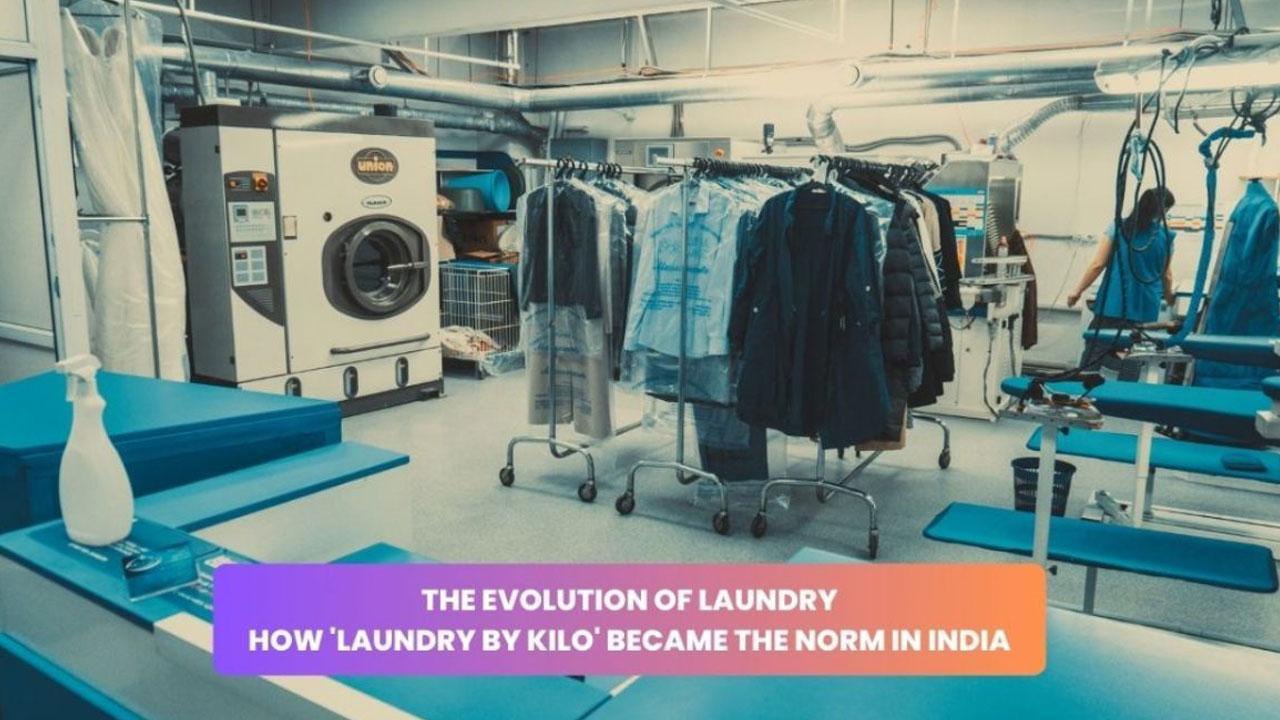The work of DhobiLite is indeed evident in their online reviews and customer testimonials.

How Laundry by Kilo Became the Norm in India
Just a decade ago, getting your laundry and dry cleaning done was quite a hassle in India. But thanks to the ongoing laundry revolution, things have changed for the better. One can easily witness laundry and dry cleaner providers in almost every locality now.
ADVERTISEMENT
However, a majority of these laundry providers have only recently started this service of “laundry by kilo”. Have you ever wondered the reason behind it? Why can’t they charge simply on a piece basis? It is a cultural shock for Indians who have paid for only vegetables and fruits on a “kg” or weight basis. Why laundry, now?
To answer these questions, we began to analyze the laundry sector thoroughly. Interestingly, we came across a laundry service provider that is currently serving 40 cities with more than 100 stores, who first introduced the “Kg” concept in 2011. It was the year marked by unorganized laundry players as compared to the ongoing expansion in 2023. What changed in the last 12 years?
You will be surprised to know that the laundry sector is a rapidly growing market in today’s date. Some statistics even predict that the laundry sector could hit $15 billion by 2025. These numbers are a clear indicator of untapped potential in the cleaning/laundry sector.
Coming back to the question of change, 2011 seems to be an outrageous move to introduce this concept of “laundry by kilo” by DhobiLite. Nishant Tripathi, an IIT-BHU graduate, addressed the growing gap in this industry and made this move. It was certainly an out-of-the-box idea for a novel company.
Why did Nishant feel the need for a new concept of measuring clothes rather than sticking to piece-wise pricing?
In Nishant's own words, "When we started the journey of DhobiLite, I took out the initial time to study the laundry sector. I studied the pricing model for laundry services. What became evident to us was that all our expenses, such as chemical usage, water consumption, electricity, and even the capital expenditure for the machines we had to acquire, were inherently linked to the weight of the laundry in kilograms. It would also be fair to the customers if we standardize the procedure. So, this is how we decided to introduce the kg system in India. However, that was a very difficult decision for all of us at DhobiLite. Initially, we saw a lot of resistance from the customers as they were not ready to accept this change.
Kya ab kapde kilo mein dhulenge?
This was a routine statement I used to hear from customers.
But, as the time passed, they began to adapt. Besides customers, even companies started to adopt this pricing model which is evident to date. ”
For an outsider, the journey of DhobiLite may look flawless and all good. But, it also had its major ups and downs. In our conversation with Nishant, we found that DhobiLite had to shut down its entire B2C model and stopped serving household customers and pivoted to B2B after 1.5 years of business. It was in 2016 when DhobiLite came back to B2C again.
While DhobiLite was experimenting and pivoting with various aspects, they also required funds as being bootstrapped. However, they carried a large vision and innovative technology to transform the laundry ecosystem. Facilities like live-tracking systems, error-free services and pick-up delivery helped them to come up with a novel and unique SOP (Standard Operating Procedure) in the industry.
Nishant says that replication of these SOP helped them in fast expansion and better control at different sites., DhobiLite began to expand its services with its franchise models, thus also generating more funds.
Talking about funds, DhobiLite has successfully generated a total revenue of approximately Rs 20 crores with an EBITA of 20%. These impressive figures have facilitated the company's expansion efforts.
You might be wondering- If expansion brings in more revenue, what is stopping DhobiLite from expanding quickly? We had the same question to which Nishant replied, “We are consciously controlling the rate of expansion so that the quality of franchise partners and implementation of structured SOPs do not get compromised. Our goal is to open 60-70 stores before the financial year ends. Numbers can be better, let’s see how it goes“
DhobiLite has recently launched 7 outlets in Vadodara and West Bengal and is about to start its processing unit in Pimpri Chinchwad this month, making laundry woes a thing of the past for even more people. Other factories under construction are Kanpur (UP), Vapi (Gujarat), Serampore (WB), Mysore (Karnataka) and Amravati (Maharashtra). The work of DhobiLite is indeed evident in their online reviews and customer testimonials.
As per Nishant- “Expanding isn't just about numbers on a chart, it’s more about gaining more trust from customers and franchise partners. That's why we're committed to growing and becoming even more efficient with steady and controlled growth together!”
 Subscribe today by clicking the link and stay updated with the latest news!" Click here!
Subscribe today by clicking the link and stay updated with the latest news!" Click here!







